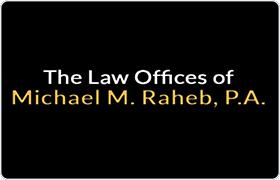Sarasota Felony Lawyer, Florida
Sponsored Law Firm
-
 x
x

Click For More Info:
-
Law Offices of Michael M. Raheb P.A.
2423 First St Fort Myers, FL 33901» view mapCriminal Defense Law Legal Problem? Call Us 24/7
At the Law Office of Michael M. Raheb, we strive to ensure each of our clients receives the individual attention and representation necessary to obtain an optimal outcome.
800-890-8981
Whitney Clay Coyne
✓ VERIFIEDFelony, Divorce, Traffic, DUI-DWI
Mr. Coyne started his career as a prosecutor for the State of Florida in the Twelfth Judicial Circuit. While acting as a prosecutor, he individually h... (more)
FREE CONSULTATION
CONTACTFREE CONSULTATION
CONTACTFREE CONSULTATION
CONTACTFREE CONSULTATION
CONTACTCharles Malouf Samaha
Education, Landlord-Tenant, Social Security, Felony, Military
Status: In Good Standing Licensed: 35 Years
Daniel Earl Scott
Landlord-Tenant, Motor Vehicle, Intellectual Property, Felony
Status: In Good Standing Licensed: 54 Years
Dante Santino Lomelo
Lawsuit & Dispute, Felony, Criminal, Personal Injury
Status: In Good Standing Licensed: 15 Years
 Michael M. Raheb Fort Myers, FL
Michael M. Raheb Fort Myers, FL Practice AreasExpertise
Practice AreasExpertise

